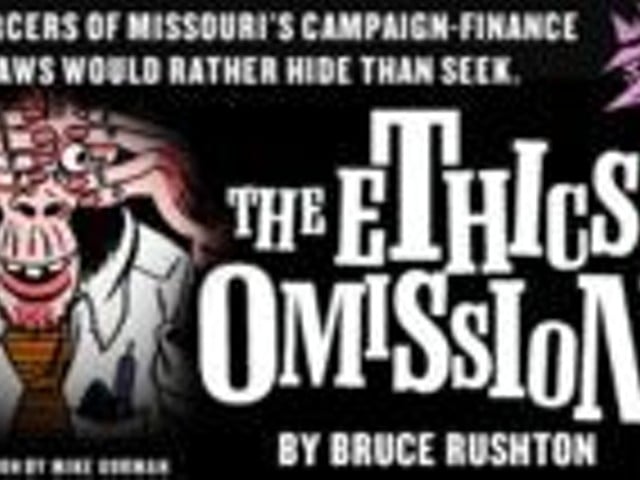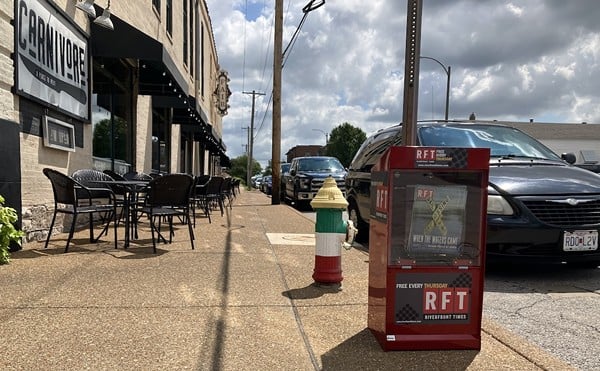Lawyers often are bearers of bad news, but this particular lawyer from Marshall, Mo., had a problem just saying no. Mike Reid simply couldn't bring himself to tell clients they weren't going to get as much money as they thought they deserved. Sometimes a case just wasn't strong enough, and the settlement he negotiated was a pittance compared with the original claim. Sometimes, for whatever reason, a judgment he'd won was uncollectable. Always, the clients wanted to get paid.
Rather than disappoint, Reid coughed up the cash, whether his clients were entitled to the money or not. At first, he dipped into his own bank account. Eventually, his money ran out. So Reid began taking money that wasn't his. In one case, he gave clients $21,000 that a friend had given him as a loan and to invest in securities. In another, he doled out $16,000 from a probate account. Part of that money went to a client who'd won a judgment Reid couldn't collect. Another $6,500 went to a client who thought he'd won $8,000. In fact, Reid had negotiated a settlement of $1,500.
Realizing this couldn't go on forever, Reid contacted his lawyer and checked himself into a Kansas City psychiatric facility, where he remained for five weeks. A psychiatrist concluded he suffered from chronic depression and a "rather extreme personality disorder" that caused his transgressions. In May 1979, Reid surrendered his license to practice law. He swore he'd repaid all the diverted money. "I had a serious medical-psychological problem for which I am seeking help," Reid wrote in an affidavit to the state Supreme Court. "I will recover."
Reid's road to recovery was paved, at least in part, by taxpayers. One month before he surrendered his law license, he was hired as an administrative assistant at the Missouri Department of Corrections. Within three years, he was promoted to legal counsel with the DOC, even though his supervisors knew he had been disbarred and couldn't appear in court or do other legal work requiring bar membership.
In September 1982 -- nine months after he was promoted to legal counsel -- Reid got his license back. A supervisor at the DOC testified on his behalf in hearings before the advisory committee of the state bar administration, an arm of the Missouri Supreme Court responsible for disciplining lawyers. By all appearances, Reid was a changed man, someone who'd been through tough times and redeemed himself. But appearances can be deceiving. Even as the Supreme Court was considering his application for reinstatement, Reid harbored a dark secret.
About three months before getting his license back, Reid had agreed to handle a divorce for a Sedalia woman. She ended up an unwitting bigamist thanks to Reid, who pretended to be a lawyer and made matters even worse by trying to cover up his deceit. Bar administration records show Reid repeatedly lied to his client and filed court documents with phony signatures.
The woman turned to Reid in June 1982 because she couldn't afford a lawyer. A mutual friend told her Reid was an attorney with the state who could help her in his spare time. After speaking with the woman, Reid went to his supervisor, James C. Martin, lead chief counsel for the DOC, and asked whether he'd handle the case. Martin, who knew Reid had been disbarred, agreed to help and didn't hear anything more about the matter until he received an answer to the woman's divorce petition, a couple of months later, from the husband's attorney. But Martin, who had never spoken to the woman, hadn't filed a petition on her behalf. And the signature on the dissolution petition filed in Pettis County court wasn't his. Rather than ask Reid why he'd gotten an answer to a petition he'd never filed, Martin asked him, "Do you want me to follow up on it, or do you want me to continue to work with it?" Reid told him, "Just give it to me."
Less than two months after getting his law license back, Reid told the woman she had a court date to finalize the divorce. He told her to stand outside a courtroom during a hearing at which a judge supposedly approved a divorce settlement. After about 45 minutes behind closed doors, Reid emerged and told his client she was officially divorced and had gotten everything she wanted, including $200 a month in child support.
Exactly what happened while the woman waited in the hallway isn't clear, but there had been no hearing on the case that day, the divorce was not finalized and no child-support order had been entered. For the next eight months, Reid paid the woman $200 a month out of his own pocket, with the checks usually coming late -- he told her the money had to be processed through the court system before she could get it. On one occasion, a check bounced. When the woman told Reid she was going to remarry, he promised to wear bells to the wedding, even though he knew she wasn't really divorced. And so the woman married again in May 1983, after receiving a photocopy of a phony divorce decree from Reid. The court clerk's signature on the decree was forged. The judge's name was typed in the space where he was supposed to sign.
Things went from bad to worse in the fall of 1983, when the first husband's attorney, Joseph Borich, gave Reid an ultimatum: If you don't give my client everything he wants in the divorce settlement, I'll tell the judge your client is a bigamist. "His reaction was bewilderment, fear, panic," Borich testified in a subsequent hearing before the bar administration's advisory committee. "His actual words were, 'Oh my God, oh my God. You got me. I will settle the case on your terms.'" And so the real divorce proceedings were adjudicated, completely unbeknownst to the woman. She found out three weeks after the fact, when she went to the courthouse to inquire about getting child-support payments directly from her ex-husband. In the real divorce, the ex-husband was ordered to pay $125 a month in child support instead of $200. The woman's signature was forged on a separation agreement that Reid had produced in court, as were her signatures on two promissory notes totaling $1,700 that were payable to the first husband and his parents -- the woman told the bar administration she'd never seen the documents before she went to the courthouse and a court clerk handed her the divorce file. Reid had also lied when he told the judge the woman had agreed to settle the divorce outside her presence. True to his word, Borich did not bring up the second marriage during court proceedings. He later said that he assumed Reid didn't know the woman had remarried and that his panicked reaction was due to surprise.
Reid also landed in trouble for handling a lawsuit against the woman's second husband, who was sued after being involved in a traffic accident. When he defended the lawsuit in August 1983, Reid had been readmitted to the bar, but he hardly proved effective. For one thing, he never visited the scene of the accident. His client testified that Reid spent just 10-15 minutes going over the case with him, and that was on the day of trial. The client ended up with an $1,800 judgment against him (ultimately reduced to $1,000 after he got a new lawyer). Reid also missed a deadline to file an appeal in that case, and he failed to pay required filing fees for an appeal. To his credit, Reid refused payment from the client, who later told the bar administration's advisory committee that the lawyer told him, "Buy me a six-pack sometime."
After an informal hearing in early 1984, the bar-administration committee issued 10 charges against Reid, saying he had acted "wrongfully, unethically and unprofessionally." He was ordered to appear at a formal hearing. Rather than go through such an ordeal, Reid voluntarily surrendered his law license, a maneuver that avoided public scrutiny. Once again, he blamed psychological problems for his failings. Because there was no formal hearing or adjudication of the charges against him, the entire record was sealed. The Riverfront Times obtained copies of the informal-hearing transcript and other closed records from a source who insisted on anonymity.
All told, it could have been worse. Despite evidence that signatures may have been forged, there was no criminal inquiry, which could have led to felony charges. Reid stayed on at the DOC -- indeed, he remained as legal counsel for two months after his disbarment, although he wasn't allowed to appear in court or do other legal work requiring bar membership. He was ultimately demoted to training officer, a position he kept until 1985, when he left state employment.
Just six years later, Reid returned to the public payroll when he was hired by the office of then-Secretary of State Roy D. Blunt to work at the state Campaign Finance Review Board. In 1993, the General Assembly abolished the board, which was widely criticized as ineffectual, and replaced it with the Missouri Ethics Commission. Reid kept his job under the new commission, which is charged with keeping politicians and public employees honest.
Today, at an annual salary of more than $60,640, Reid is the Ethics Commission's director of compliance. He is the man who receives complaints, assigns investigators, makes sure investigations are thorough and otherwise helps decide whether politicians, campaign contributors and state employees have acted ethically and within the bounds of the law.
"I know that it sounds incongruous that I had some problems," he says. "I believe I've turned my life around. If I did something wrong 18 years ago, I'm sure as hell sorry about it. I believe now that I try to do a good job."





